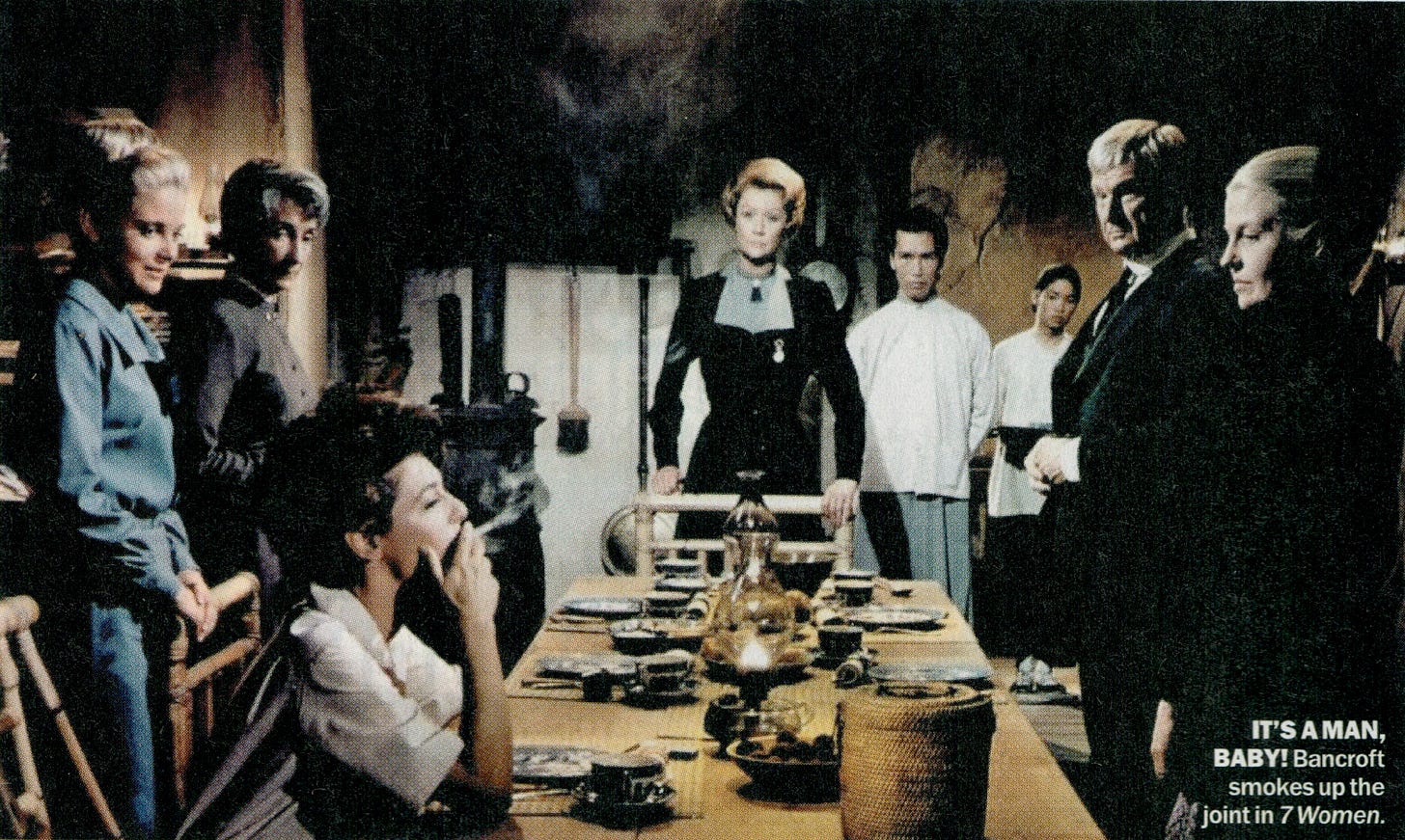BAM’s “The Late Film” series gathers auteurs in twilight. By Keith Uhlich
There are currently few (all right, no) other movie houses where Robert Bresson’s prizewinning L’Argent (1983) shares close quarters with Howard Hawks’s little-seen Red Line 7000 (1965), so the Brooklyn Academy of Music’s “The Late Film” series is can’t-miss viewing for cinephiles. It’s a consciously auteurist fest, an eclectic grouping of pictures created by directors who, in these final or near-final efforts, “[work] completely at [their] own pace…in defiance of stylistic and structural norms,” per BAM’s press notes. Defiance is the key term—a somewhat damning sense that there’s nothing left for any of these artists to lose. (Appropriately, several films in the series climax in literal obscenity, acting as resoundingly blue final statements from their makers. Remember the narcotized “Fuck” that Nicole Kidman puts forth to Tom Cruise in Stanley Kubrick’s Eyes Wide Shut?)
Though these directors often look to the beyond with a damn-it-all world-weariness, what’s equally fascinating is how they burrow beneath the surface of what lies before them. The unsettling close-up that concludes Kenji Mizoguchi’s Street of Shame (1956), for example, is indicative of a late film’s tendency toward psychological illumination. As a new hire at a Japanese whorehouse tentatively beckons to offscreen clients, Mizoguchi stays unflinchingly on her distressed face, which becomes a moving mosaic as she peeks out from behind a tiled column. The girl is objectified in the world of the film, but Mizoguchi defines her in contrast with the oppressive surroundings, giving both performer and character physical and emotional heft in much the same way John Ford does with his lead actress in 7 Women (1966).
In that film, Anne Bancroft’s Dr. D.R. Cartwright is in the near opposite position to Mizoguchi’s prostitute—she’s too much herself, a cowboy-garb-clad gender bender who swaggers, John Wayne-style, into a cloistered Mongolian mission. There live the seven females of the title, who aren’t characters so much as repression-prone aspects of womanhood. Cartwright is both beast and liberator to them, and it’s only after marauding warriors—led by rugged character actor Mike Mazurki in full-on yellow face—invade the mission that Cartwright willingly, though mutinously, feminizes herself (in geisha garb, no less).
It’s unclear from 7 Women whether Ford was genuinely engaging with changing times, or just trying his hand at a role-reversal B movie that benefitted from his alpha-male touch. In contrast, Robert Altman seems absolutely enamored with The Company (2003), one of the finest portraits of young love, and a testament to the fact that not all aging artists are concerned, first and foremost, with their own mortality. Altman places the film’s celebrity star-producer, Neve Campbell, among the actual members of Chicago’s Joffrey Ballet Company. Her Loretta “Ry” Ryan is poised to become a breakout star, only to have her chance snatched away when she sprains an ankle during the climactic dance. Altman’s gaze retains its expected acidity, but he openly empathizes with his characters this time out, especially in their day-to-day struggles. It’s not so much that the director has tempered with age as that he has sensitively drawn on his own experiences to impart knowledge and pass the torch.
Like a nonmusical version of one of The Company’s tempestuous pas de deux, Jacques Rivette’s The Duchess of Langeais (2007), an adaptation of a Balzac novella, details the doomed love affair between French soldier Armand de Montriveau (Guillaume Depardieu) and romantically coy royal Antoinette de Langeais (Jeanne Balibar). The duo’s relationship is one of verbosely veiled insults that lead, slowly and inexorably, to violence, kidnapping and self-exile. Rivette has always been interested in the games people play with each other, though in Duchess he recognizes that Armand and Antoinette’s various artifices cannot possibly sustain them forever. As if to counter their callow onscreen displays, Rivette whittles his lifelong obsessions to a fine, piercing point. The result is one of his best films and proof positive that age and wisdom often do go hand in hand.
“The Late Film” runs Apr 30–May 21 at BAM.



